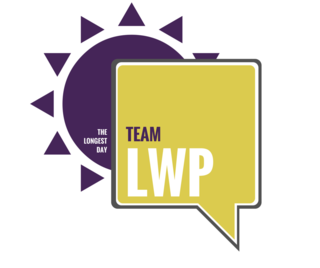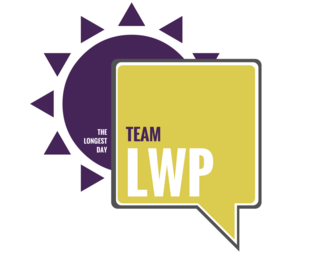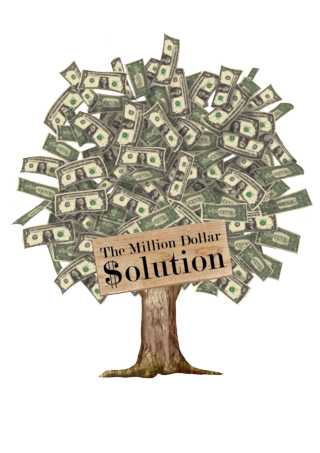Did you know successful law practice comes down to knowing your primary colors? I've had the privilege of working with estate planning lawyers across America since 2000. One of the biggest struggles I find with attorneys is their understanding of how to run their law practice like a business. Many have read “The E-Myth” by Michael Gerber, but few have implemented it. I was first introduced to “The E-Myth” in 2000, but after reading it I did what few others do: I began living it! I began creating systems and processes to run my practice like a business, and within a year of doing so I was cited by national industry leaders and asked to step on their stage to show their members how to run their practice like a business.
Fast forward 16 years – after having made thousands of lawyers more successful, I'm happy to say true success in your law firm business really comes down to understanding three primary colors: yellow, blue and green.
 In the Lawyers with Purpose Practice Management system, all lawyers are trained to pay attention to how they spend their time. To create a successful business, you must spend your time in three keys areas. First, you must, as Michael Gerber says, work "in your business." That means you must schedule time on your calendar when you are not working on clients, marketing or paying bills, but rather are working on your business and identifying your future goals, wants and needs. In LWP we call this “yellow time.” This is the time when you are focusing on your business, building systems, streamlining work and doing things that over the long term will make you more efficient and profitable.
In the Lawyers with Purpose Practice Management system, all lawyers are trained to pay attention to how they spend their time. To create a successful business, you must spend your time in three keys areas. First, you must, as Michael Gerber says, work "in your business." That means you must schedule time on your calendar when you are not working on clients, marketing or paying bills, but rather are working on your business and identifying your future goals, wants and needs. In LWP we call this “yellow time.” This is the time when you are focusing on your business, building systems, streamlining work and doing things that over the long term will make you more efficient and profitable.
Second, to have a successful law firm practice, it is critically important that you market your firm. If nobody knows you're there, what services you provide or how you can help them, then no one will hire you. In Lawyers with Purpose we have three primary methodologies of marketing: wholesale, retail, and branding. Wholesale marketing is working with “allied professionals,” or those who serve your target market. The typical wholesale relationship will be with financial advisors, bankers, accountants, nursing homes, assisted-living facilities and the like. Using the Lawyers with Purpose Relationship Management System and our Synergy Meetings often leads to referrals from these allied professionals that generate revenue in excess of $10,000 within one to two weeks of your meeting them. In Lawyers with Purpose this has become known as the $10,000 breakfast.
Retail marketing is also important and is your way to identify yourself in the marketplace so people know where to find you when they need you. Chet Holmes International did a multimillion-dollar study that identified an interesting idea: At any point in time, 3 percent of the people need what you're selling right now, and there's another 7 percent who will need it in the very near future. Retail marketing is a great way to reach that 10 percent of the public, so they "know who to call" to solve the problems you fix.
Retail marketing is also important because it helps establish your brand. Branding is what people think about you when they hear your name. Branding is a product of your wholesale marketing, retail marketing and who you are with your clients. What clients experience when they work with you or your firm becomes your brand. Your brochure, logo and written material also become part of your brand. When utilizing wholesale, retail and branding methodologies within the proper context, your marketing time can be maximized.
In Lawyers with Purpose, marketing time is “blue time,” and we differentiate between light blue and dark blue marketing time. Light blue marketing time is general marketing, where you are creating relationships and getting individuals to identify whether you might be able to help them. Dark blue times are specific meetings where clients will or will not hire you. The significance of dark blue is that, although light blue time is used to generate and develop relationships, dark blue time is spent converting those relationships into active clients! Therefore, in the Lawyers with Purpose Relationship Management system and Client Enrollment System, it is essential to distinguish your light blue appointments from your dark blue appointments to ensure that you will get hired. In Lawyers with Purpose, we call getting hired our “green time.”
Anyone who took art class in elementary school learned that combining yellow and blue results in green. The same is true in your business. When you work on your business (yellow time) and have an effective marketing strategy (blue time), people will hire you. Green, in the Lawyers with Purpose system, is money time. This is time in your calendar when you are working on things that generate revenue – not marketing, but rather working on client work or things that cause clients to actually write you a check.
Many lawyers’ cash flow suffers merely because they fail to get the work done. Doing timely work is essential to having consistent cash flow and profitability. In Lawyers with Purpose, one of our first priorities with members is to ensure that their time template for the week has all the necessary yellow and blue time to generate green time.
Most lawyers have all blue time and then all green time; that's why they ride a cash flow rollercoaster, , because they market, market, market, then they stop marketing to get all the work done, and then by the time they get all the work done, there's no more work and they have to go out and market again. This leads to inconsistent cash flow. The Lawyers with Purpose cash flow calendaring system is color-coded to ensure that not only you but your entire team utilizes yellow time, blue time and green time sufficiently to ensure that your cash flow is consistent and you operate your firm like a business. Our members have said it is the most empowering thing they've experienced – having consistent cash flow, being able to take vacations without worry, and having the relationships and marketing that lead to consistent cash flow. More importantly, it enables them to spend the time on their business to ensure that it continually grows to the next level.
So, do you know your primary colors? Are you living them? Come join Lawyers with Purpose in the room in Houston the week of October 26th – 28th. Click here to reserve your seat today, and let us show you how to use yellow and blue time to produce green time, so you can have the practice you've always dreamed of.
David J. Zumpano, Esq., CPA, Co-founder Lawyers With Purpose, Founder and Senior Partner of Estate Planning Law Center
 What is the greatest success you’ve had since joining LWP?
What is the greatest success you’ve had since joining LWP?








